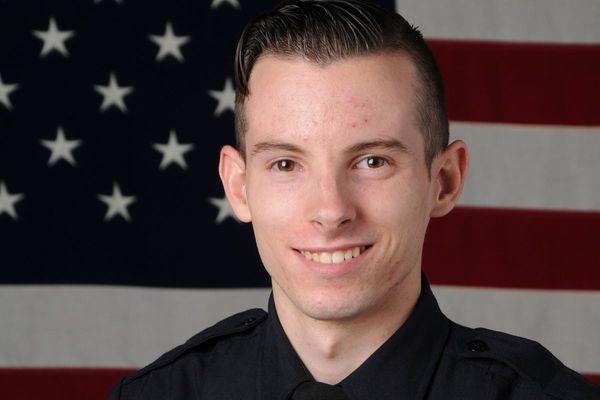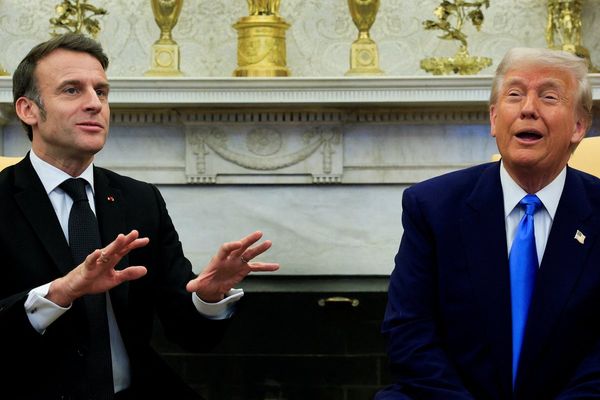
Boris Johnson has warned about the likelihood of “fatigue” among western nations over continued support for Ukraine, as he began talks at the G7 summit in Germany, where he hopes to push for renewed sanctions against Russia.
Before the first day of the annual gathering of political leaders, held amid ultra-tight security in the Bavarian countryside, Johnson also hailed a new international ban on importing Russia gold.
Speaking to reporters at the summit, Johnson, who has made support for Ukraine and its president, Volodymyr Zelenskiy, one of the defining features of his premiership, warned that it would be hard to maintain a united front in the longer term.
“Realistically there is going to be fatigue in populations and politicians,” he said, adding it was possible the current near-unanimity of the response to Russia’s invasion could begin to fracture.
“I think the pressure is there and the anxiety is there, we have got to be honest about that,” Johnson said.
“But the most incredible thing about the way the west has responded to the invasion of Ukraine by Putin has been the unity – Nato has been solid, the G7 has been solid, and we continue to be solid.
“But in order to protect that unity, in order to make it work, we have got to have really, really honest discussions about the implications of what’s going on, the pressures that individual friends and partners are feeling, that populations are feeling – whether it’s on the costs of their energy or food or whatever.”
Following reports that Johnson hoped to welcome Zelenskiy to the UK, potentially for a state visit, if possible, he confirmed the general idea.
“I think that Volodymyr Zelenskiy has done an absolutely amazing job of leading his country and leading world opinion in an appalling time,” Johnson told a pooled interview with ITV News.
“If he ever becomes free to leave and it makes sense for him to leave Ukraine, then obviously the UK would be only too honoured to host him.
“But the most important thing is for us to continue to be united here at the G7. And we are.”
Johnson arrived at the talks from Rwanda, where he had been taking part in a Commonwealth summit. He will then head from Germany to Madrid for a gathering of Nato leaders, which will also be dominated by Ukraine.
Zelenskiy is scheduled to take part virtually in both summits, with Downing Street saying Johnson would push for moves towards new sanctions and, at the Nato gathering, more countries to increase their defence spending.
In what could be seen as a pointed omission, asked just before a bilateral meeting with Emmanuel Macron about whether France and Germany were doing enough over Ukraine, Johnson only mentioned the German response.
“I never believed in my lifetime that I would see a German chancellor stepping up in the way that Olaf Scholz has and sending weaponry to help the Ukrainians to protect themselves,” he said.
“He has made huge, huge strides. We have 4% of our gas comes from Russia; in Germany, it’s 40%. They are facing real, real pressures, they are having to source energy from elsewhere. But they are doing it. They are making the effort. They are making the sacrifice. That’s because they see that the price of freedom is worth paying.
“This is something that it’s worth us standing up for together. And that is the principle that a free, independent sovereign country like Ukraine should not be violently invaded and should not have its boundaries changed by force.”
Johnson, who is spending nine days abroad for the three summits, while there is renewed discontent with his leadership among Tory MPs back in the UK, was scheduled to have a meeting with Scholz later on Sunday.
In much-reported comments just before he left Rwanda, the prime minister sought to dismiss speculation he could be replaced after two devastating byelection losses for his party on Thursday by saying he hoped to serve a third term as prime minister and stay in power into the 2030s.
Before the start of the G7, a joint announcement by the UK, Canada, the US and Japan said that new exports of Russian gold would no longer be allowed to enter the countries.
A Downing Street statement said Johnson would use the G7 to urge other leaders to follow suit, and seek to isolate Russia from the international finance system.







